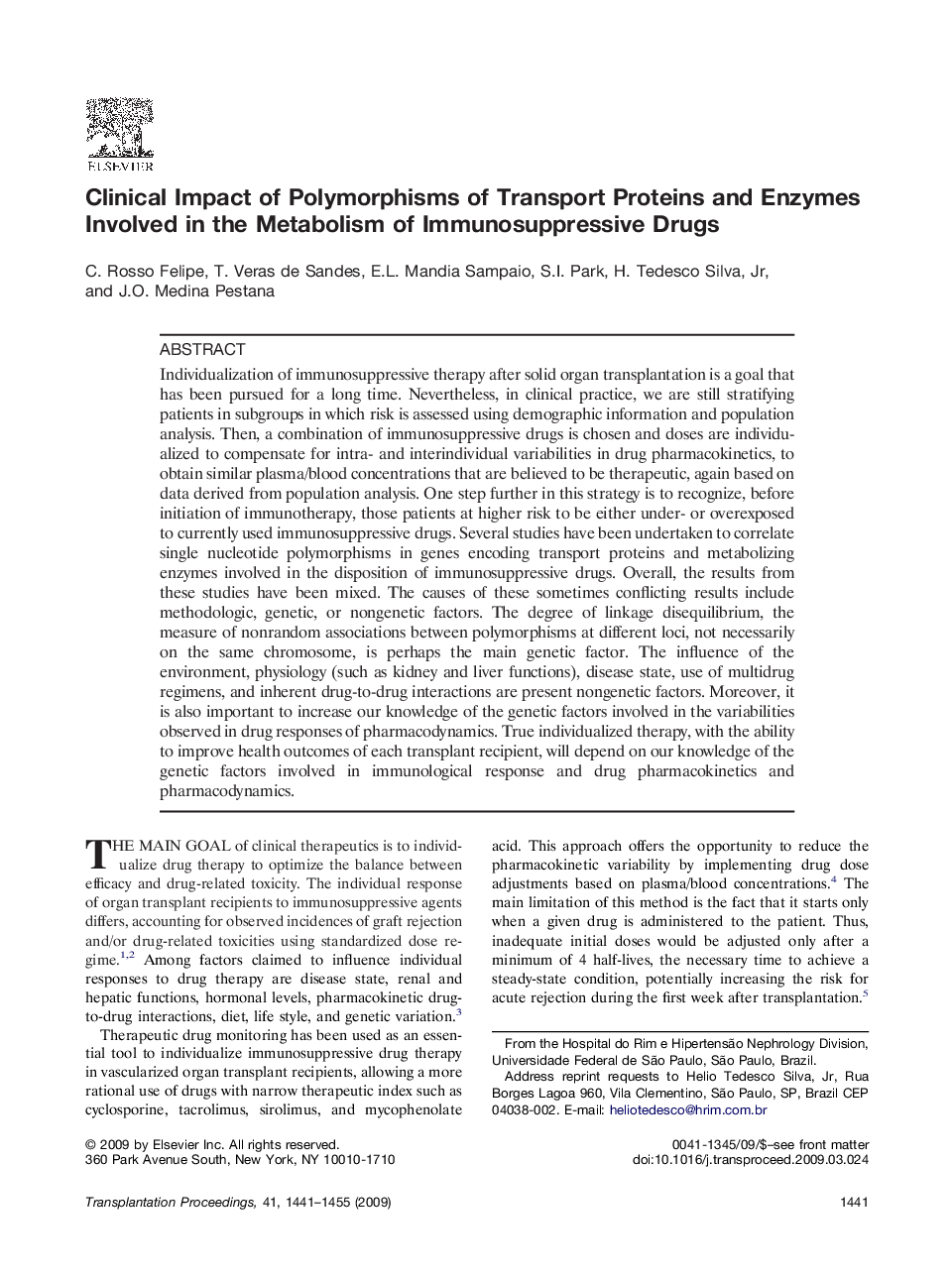| کد مقاله | کد نشریه | سال انتشار | مقاله انگلیسی | نسخه تمام متن |
|---|---|---|---|---|
| 4259212 | 1284568 | 2009 | 15 صفحه PDF | دانلود رایگان |

Individualization of immunosuppressive therapy after solid organ transplantation is a goal that has been pursued for a long time. Nevertheless, in clinical practice, we are still stratifying patients in subgroups in which risk is assessed using demographic information and population analysis. Then, a combination of immunosuppressive drugs is chosen and doses are individualized to compensate for intra- and interindividual variabilities in drug pharmacokinetics, to obtain similar plasma/blood concentrations that are believed to be therapeutic, again based on data derived from population analysis. One step further in this strategy is to recognize, before initiation of immunotherapy, those patients at higher risk to be either under- or overexposed to currently used immunosuppressive drugs. Several studies have been undertaken to correlate single nucleotide polymorphisms in genes encoding transport proteins and metabolizing enzymes involved in the disposition of immunosuppressive drugs. Overall, the results from these studies have been mixed. The causes of these sometimes conflicting results include methodologic, genetic, or nongenetic factors. The degree of linkage disequilibrium, the measure of nonrandom associations between polymorphisms at different loci, not necessarily on the same chromosome, is perhaps the main genetic factor. The influence of the environment, physiology (such as kidney and liver functions), disease state, use of multidrug regimens, and inherent drug-to-drug interactions are present nongenetic factors. Moreover, it is also important to increase our knowledge of the genetic factors involved in the variabilities observed in drug responses of pharmacodynamics. True individualized therapy, with the ability to improve health outcomes of each transplant recipient, will depend on our knowledge of the genetic factors involved in immunological response and drug pharmacokinetics and pharmacodynamics.
Journal: Transplantation Proceedings - Volume 41, Issue 5, June 2009, Pages 1441–1455